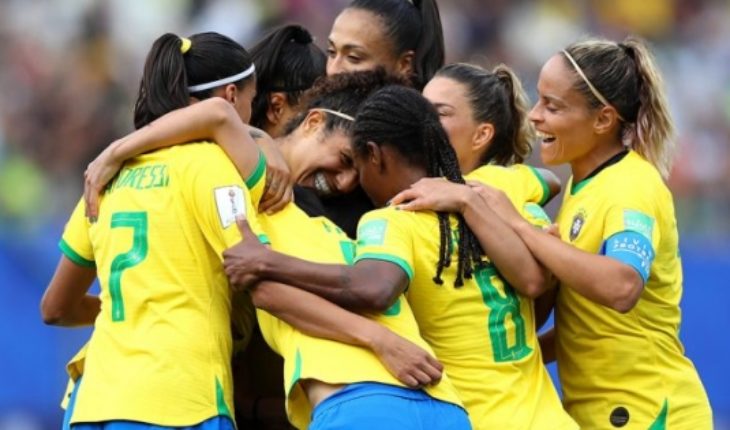“It’s $85,000 for the women’s champion and $12 million for the men’s, it’s a lot of difference,” confessed in an interview with Corinthians forward Giovanna Crivelari, 26, author of the first winning the 2-0 win against the Brazilian Railway, which gave them the title on October 28.
The complaint reflects that in football the gender gap is still huge and is one of the biggest obstacles to the growth of the modality, both in Brazil and throughout South America.
“We dream of equality in football, both in structure and in awards,” another of the Victors of the Libertadores was known for “Timao”, Cacau Fernandes.
As an example in other modalities, tennis awards the same monetary prize for the winners and winners of the four Grand Slams: Australian Open, Roland Garros, Wimbledon and the US Open.
The economic gulf between boys and girls in the Liberators
The South American Football Confederation (Conmebol) this year allocated $161.9 million in prize money to the male teams participating in the tournament, a “historic” figure.
Just for the final, which will be played on November 23 in Lima between Flamengo of Brazil and River Plate of Argentina, the winner will take 12 million dollars and the runner-up 6 million, 100% more than was awarded in 2018.
In addition, each of the teams that played in the first phase of the Libertadores took $300,000, 3.5 times more than the women’s champion award.
At the close of the 2019 Libertadors, the continental champion will accumulate a total of $20.4 million, while the runner-up will take $14.4 million.
The women’s tournament, which was played in Ecuador and featured 16 teams, also reached record figures in the modality. He awarded $85,000 to Corinthians and $50,000 to the second place, the Araraquara Railway. An amount, however, far from the millions of kids.
In addition, this year the finalists had to face protests in Ecuador against the president of that country, Lenín Moreno, a challenge that the boys will not be exposed to, since in the face of the social outburst that Chile lives the Conmebol decided to move the final of Santiago to Lima.
“It was inhumane for us to stay in a situation like that, not knowing whether it would have left or not (…) I found Conmebol a disrespect to the fact that they let the competition continue with the country going through a situation like that,” said Fernandes, who found that they were close to leaving the competition.
Efe contacted Conmebol sources to find out his opinion about the monetary discrepancy in the awards between men and women, but, so far, he has not received an answer.
Brazil, a reference in women’s football in Latin America
In her experience in Spain in 2008, 2009 and 2011, Fernandes was able to see a totally different women’s football structure from Brazil.
“When I played there, Spanish football was already very good. In the organization of the federations it was much more advanced than Brazil. And the support for women’s football was much higher, there wasn’t as much prejudice and machismo as here,” she stressed.
Already Crivelari, who played in China and South Korea, also saw a much higher level of development and investment, mainly in the base categories.
Despite all the difficulties they face on a daily basis in Brazil, Fernandes and Crivelari are optimistic.
“Sao Paulo is an example because the federation of that region improves the local championship every year, Brasileiro is also evolving,” Fernandes said.
In addition, she recalled the big leap in the visibility of women’s football in the country with the broadcast of this modality on television.
A record-breaking team
The Corinthians women’s soccer team was created in 1997 and ceased to exist in 2009 due to a lack of money and sponsorship. It was only in 2016 that he returned thanks to a partnership with the Gr. Osasco Audax.
The team, commanded by manager Arthur Elias, then won their first Brazilian Cup, guaranteeing their place for the 2017 Libertadores, in which they became champions against the Chilean Colo Colo.
In the 2017-2018 season, the club of Sao Paulo ended its relationship with Audax and fully assumed the management of the team, which won the Brasileiro championship that year.
The Corinthians, whose male section is one of the most laureates in Brazil, lives the best moment in its history this 2019. He broke last August, according to Fifa, the world record by achieving 28 consecutive victories in all competitions he was participating in, and established the new 34-match mark.
“It is a team that suffers little, gives few goal opportunities to the opponents and that creates many opportunities, which is clear in the numbers, more than 140 goals in the season, only 20 suffered,” Elias said.
translated from Spanish: They earn 150 times less to win the same tournament as the boys
November 9, 2019 |





